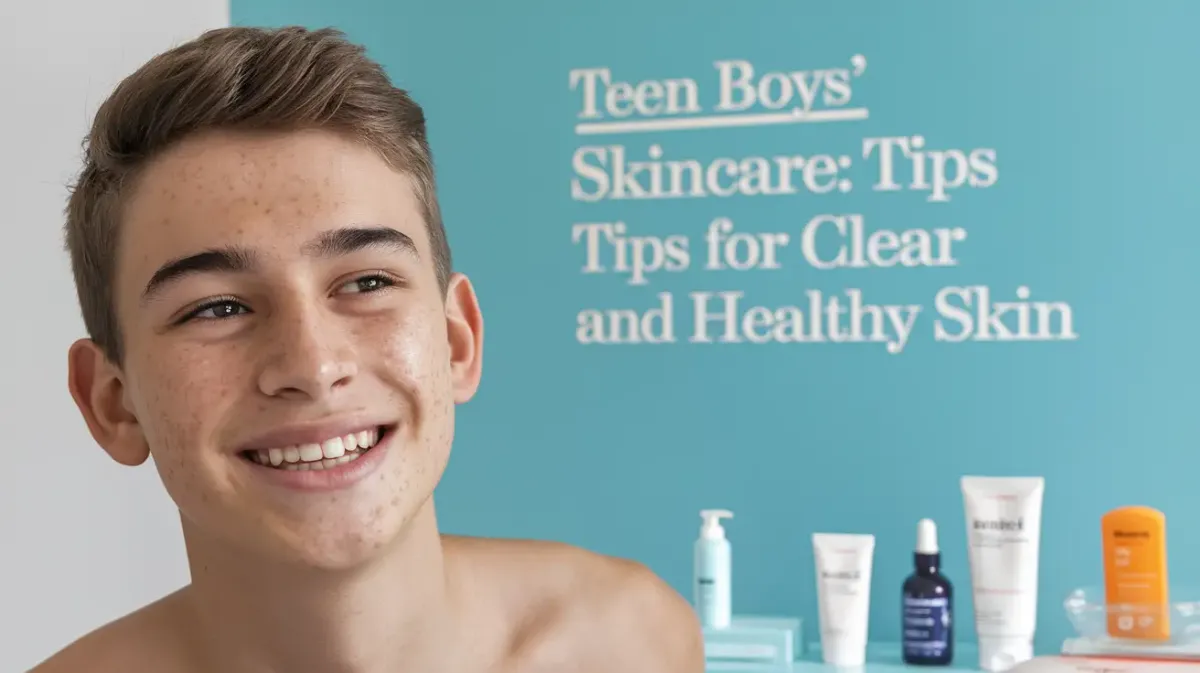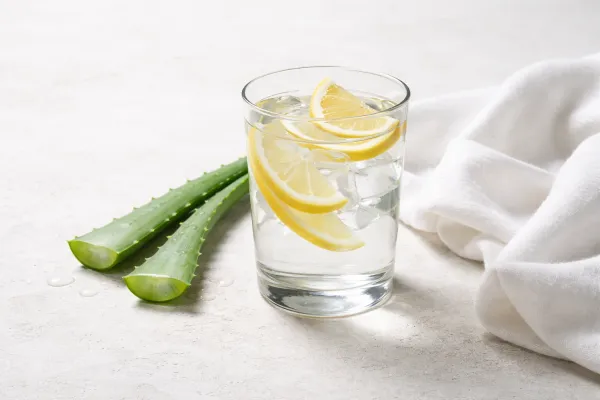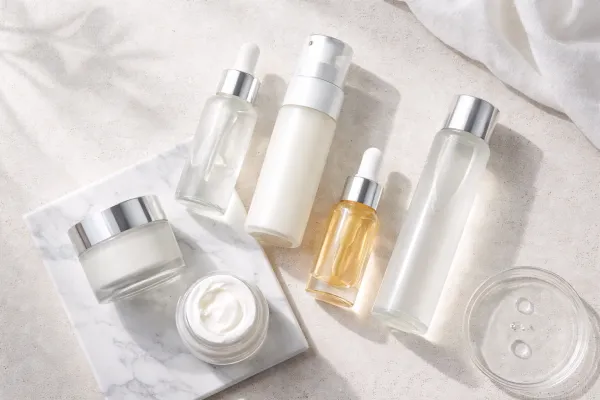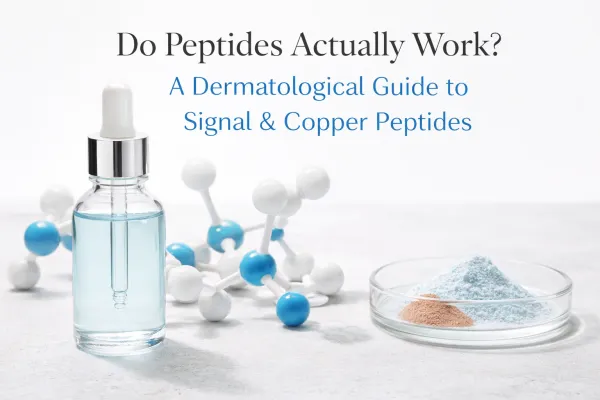Skincare Tips for Teenage Boys
Discover essential skincare tips for teenage boys to combat acne, oily skin, and more. Learn a simple routine for clear, healthy skin.

Alright, let's talk about something that might seem a little daunting: skincare. If you're a teenage boy, you're probably dealing with a lot of changes, and your skin is no exception.
From sudden breakouts to that annoying oily sheen, it can feel like your face is constantly throwing curveballs. But here's the good news: taking care of your skin doesn't have to be complicated.
In fact, with the right approach and a few simple habits, you can get your skin looking and feeling its best. This isn't about turning you into a beauty guru; it's about giving you the tools to manage your skin effectively and confidently.
So, let's dive into some essential skincare tips for teenage boys that are easy to follow and actually work.
Key Takeaways: Skincare Tips for Teenage Boys
- Consistency is Key: A simple, consistent routine is more effective than sporadic, complex ones.
- Gentle Cleansing: Wash your face twice daily with a gentle cleanser to remove dirt and excess oil.
- Hydration Matters: Use a lightweight, non-comedogenic moisturizer to keep your skin balanced.
- Sun Protection: Apply sunscreen daily to protect your skin from harmful UV rays.
- Targeted Treatments: Use spot treatments for acne as needed, but avoid picking at pimples.
Understanding the Basics of Teenage Skin
Teenage years are a rollercoaster for your skin. Hormonal changes are the main culprit, leading to increased oil production. This excess oil, combined with dead skin cells and bacteria, can clog pores and cause acne. It's a common experience, but understanding what's happening beneath the surface can help you tackle it more effectively.

It's not just about washing your face; it's about understanding the delicate balance your skin needs. Think of your skin like a finely tuned engine – it needs the right care to run smoothly. And just like an engine, neglecting it can lead to problems. So, let's get into the specifics of how to keep that engine purring.
During puberty, the sebaceous glands go into overdrive, producing more sebum. This is why many teenage boys experience oily skin and breakouts. The key is to manage this oil production without stripping your skin of its natural moisture.
This is where gentle cleansers and lightweight moisturizers come in. It's also crucial to understand that everyone's skin is different. What works for your friend might not work for you, so it's important to pay attention to how your skin reacts to different products. This is a journey of discovery, and I’m here to guide you.
- Hormonal changes increase sebum production.
- Excess oil can lead to clogged pores and acne.
- Understanding your skin type is crucial for effective skincare.
- Gentle products help maintain skin balance.
The Essential Skincare Routine for Teenage Boys
Now, let's break down the core routine. It's simple, I promise. You don't need a 10-step process; just four key steps that you can easily incorporate into your daily life. First up, cleansing. Think of it as washing the day (and night) away. You need a gentle cleanser that won't strip your skin of its natural oils. Next, moisturizing. Yes, even if you have oily skin, you need to moisturize.
It's about keeping your skin hydrated and balanced. Then, sunscreen. This is non-negotiable. Sun damage is a real thing, and it's important to protect your skin from harmful UV rays. Finally, spot treatments. When those pesky pimples pop up, you need a targeted approach. This routine is your foundation, and once you get the hang of it, it will become second nature. And trust me, your skin will thank you.
Consistency is the secret sauce here. Doing this routine once in a while won't cut it. It's about making it a daily habit, like brushing your teeth. Think of it as a small investment in your future self. And remember, it's okay to start simple. You don't need to buy every product on the market.
Start with the basics and gradually add more as you learn what your skin needs. It's a marathon, not a sprint. And as someone who has seen countless people struggle with their skin, I can tell you that this routine is a game-changer.
- Cleansing: Wash your face twice daily (morning and night) with a gentle cleanser.
- Moisturizing: Apply a lightweight, non-comedogenic moisturizer.
- Sun Protection: Use a broad-spectrum sunscreen with at least SPF 30 daily.
- Spot Treatment: Apply acne treatments as needed.
For more information on a basic routine, check out this guide on beginners skincare routine for teens.
Choosing the Right Cleanser for Teenage Skin
The cleanser is the first line of defense in your skincare routine. It's what removes the dirt, oil, and grime that can clog your pores. But not all cleansers are created equal. You need a gentle one that won't leave your skin feeling tight and dry. Look for cleansers that are specifically designed for oily or acne-prone skin.
Ingredients like salicylic acid and tea tree oil can be very effective in combating breakouts. Avoid harsh bar soaps and alcohol-based products, as these can strip your skin of its natural oils and actually make the problem worse. Think of your cleanser as a gentle helper, not an aggressive scrub.
It's about cleaning your skin without causing irritation. And remember, less is often more. You don't need to use a lot of product to get the job done.
When choosing a cleanser, pay attention to the texture. Foaming cleansers are great for oily skin, while gel cleansers are a good option for combination skin. If you have sensitive skin, look for cleansers that are fragrance-free and hypoallergenic.
And don't be afraid to experiment a little to find what works best for you. It's a process of trial and error, but once you find the right cleanser, it will make a world of difference. I've seen so many people struggle with the wrong cleanser, and it's amazing how much better their skin looks when they switch to something gentler and more effective.
For more information on cleansers, check out this article on top cleansers for teenage skin.
- Look for gentle, foaming cleansers with salicylic acid or tea tree oil.
- Avoid bar soaps and alcohol-based products.
- Consider gel cleansers for combination skin.
- Choose fragrance-free options for sensitive skin.
Here's a quick comparison table of different types of cleansers:
| Cleanser Type | Best For | Key Ingredients | Avoid If |
|---|---|---|---|
| Foaming Cleanser | Oily skin | Salicylic acid, tea tree oil | Dry or sensitive skin |
| Gel Cleanser | Combination skin | Hyaluronic acid, glycerin | Very oily skin |
| Cream Cleanser | Dry skin | Ceramides, shea butter | Oily or acne-prone skin |
| Micellar Water | All skin types (gentle makeup removal) | Micelles | Heavy makeup removal |
The Importance of Moisturizing for Teenage Boys
I know what you might be thinking: "Moisturizer? But I have oily skin!" Trust me on this one. Moisturizing is crucial, even if your skin feels like an oil slick. When you skip moisturizer, your skin can actually overproduce oil to compensate, leading to even more breakouts. The key is to choose a lightweight, oil-free moisturizer that won't clog your pores. Look for products that are labeled "non-comedogenic," which means they won't cause acne.
Ingredients like hyaluronic acid and ceramides are great for hydrating your skin without making it feel greasy. Think of moisturizer as a shield that protects your skin and keeps it balanced. It's not about adding more oil; it's about maintaining the right level of hydration.
Applying moisturizer is like giving your skin a drink of water. It helps to keep it plump, smooth, and healthy. And it's not just about preventing dryness; it's also about protecting your skin from environmental damage. The right moisturizer can also help to soothe irritation and reduce redness.
So, don't skip this step, even if it seems counterintuitive. It's a fundamental part of any good skincare routine. And as someone who has seen the difference that a good moisturizer can make, I can tell you that it's worth the effort.
For more information on moisturizers, check out this article on essential moisturizing tips for darker skin.
- Choose lightweight, oil-free formulations.
- Look for non-comedogenic products.
- Consider products with hyaluronic acid or ceramides.
- Apply moisturizer after cleansing, both morning and night.
Sun Protection: A Must for Teenage Skin
Sunscreen is not just for the beach; it's an everyday essential, especially for teenage skin. The sun's harmful UV rays can cause long-term damage, including premature aging and an increased risk of skin cancer.
And let's be honest, nobody wants wrinkles before they're 30. So, make sunscreen a non-negotiable part of your daily routine. Choose a broad-spectrum sunscreen with at least SPF 30. This means it protects against both UVA and UVB rays.
Look for non-comedogenic formulas that won't clog your pores. Apply it liberally to all exposed skin, including your face, neck, and ears. And remember, reapply every two hours, especially if you're sweating or swimming. Sunscreen is your best friend when it comes to protecting your skin, and it's a habit that will benefit you for years to come.
I know that sunscreen can sometimes feel greasy or heavy, but there are many lightweight options available these days. You can even find sunscreens that are specifically designed for oily skin. And don't think that you only need sunscreen on sunny days. UV rays can penetrate clouds, so it's important to wear sunscreen every day, regardless of the weather.
It's a small step that can make a big difference in the long run. And as someone who has seen the devastating effects of sun damage, I can't stress enough how important this step is.
For more information on sunscreens, check out this article on best sunscreens for darker skin.
- Opt for non-comedogenic, broad-spectrum SPF 30 or higher.
- Apply sunscreen daily, even on cloudy days.
- Reapply every two hours, especially when sweating or swimming.
- Choose lightweight formulas for oily skin.
Targeted Spot Treatments for Acne
Let's face it, pimples happen. And when they do, you need a targeted approach. Spot treatments are designed to address those pesky breakouts directly. Look for products that contain ingredients like salicylic acid, benzoyl peroxide, or topical retinoids. These ingredients work by unclogging pores, reducing inflammation, and killing bacteria.
But remember, spot treatments are not meant to be used all over your face. They're designed to be applied directly to the affected areas. And don't overdo it. Using too much spot treatment can actually irritate your skin and make the problem worse. Think of spot treatments as your secret weapon against breakouts, but use them wisely.
It's also important to resist the urge to pick at your pimples. I know it's tempting, but picking can lead to scarring and further inflammation. Instead, apply a spot treatment and let it do its job.
And remember, patience is key. It can take a few days for a spot treatment to work, so don't get discouraged if you don't see results right away. And if you're struggling with severe acne, it's always a good idea to consult a dermatologist. They can recommend more advanced treatments and help you get your skin under control.
For more information on acne treatments, check out this article on teenage acne treatment options.
- Use products containing salicylic acid, benzoyl peroxide, or topical retinoids.
- Apply spot treatments directly to affected areas.
- Avoid picking at pimples to prevent scarring.
- Be patient and consistent with your treatment.
Additional Skincare Tips for Teenage Boys
Beyond the core routine, there are a few other things you can do to keep your skin healthy. First, avoid over-washing your face. Washing too often can strip your skin of its natural oils and lead to dryness and irritation. Stick to washing twice a day, once in the morning and once at night. Use lukewarm water instead of hot water, as hot water can also dry out your skin.
Consider using a gentle exfoliator once or twice a week to remove dead skin cells. But don't over-exfoliate, as this can irritate your skin. And finally, pay attention to your diet. Eating a healthy diet and staying hydrated can have a positive impact on your skin. It's all about taking a holistic approach to skincare.
These additional tips are like the extra credit in your skincare journey. They're not essential, but they can make a big difference in the overall health and appearance of your skin. Think of them as fine-tuning your routine to get the best possible results. And remember, skincare is not just about what you put on your skin; it's also about how you treat your body from the inside out.
So, make sure you're eating a balanced diet, drinking plenty of water, and getting enough sleep. These habits will not only benefit your skin but also your overall health and well-being. And as someone who has seen the impact of lifestyle choices on skin health, I can tell you that these tips are worth incorporating into your daily routine.
For more information on exfoliation, check out this article on essential exfoliation tips for darker skin.
- Keep the routine simple and consistent.
- Avoid over-washing, which can strip natural oils.
- Use lukewarm water instead of hot water.
- Consider using a gentle exfoliator 1-2 times per week.
- Don't pick at pimples.
- Pay attention to diet and stay hydrated.
Addressing Specific Skin Concerns
Every teenager's skin is unique, and you might be dealing with specific concerns like oily skin or acne-prone skin. If you have oily skin, focus on using oil-free, non-comedogenic products. Consider using a toner with natural ingredients like witch hazel to help control oil production.
If you have acne-prone skin, look for products with acne-fighting ingredients like salicylic acid and benzoyl peroxide. And don't just focus on your face; body acne is also common during the teenage years. Make sure you're cleansing your neck, shoulders, and back as well. It's about tailoring your routine to address your specific needs. And remember, it's okay to seek professional help if you're struggling to manage your skin on your own.
Addressing specific skin concerns is like customizing your skincare routine. It's about understanding what your skin needs and choosing products that target those needs. And remember, it's okay to experiment a little to find what works best for you. And if you're unsure about what products to use, don't hesitate to ask a dermatologist for advice.
They can help you create a personalized skincare plan that addresses your specific concerns. And as someone who has seen countless people transform their skin, I can tell you that it's worth the effort to find the right approach. For more information on acne-prone skin, check out this article on skincare routine for acne-prone skin.
- Oily Skin: Use oil-free, non-comedogenic products and consider using a toner with natural ingredients.
- Acne-Prone Skin: Look for products with acne-fighting ingredients like salicylic acid and cleanse face, neck, shoulders, and back.
Here's a table summarizing how to address different skin concerns:
| Skin Concern | Key Ingredients | Product Recommendations | Additional Tips |
|---|---|---|---|
| Oily Skin | Salicylic acid, witch hazel | Oil-free cleansers, toners | Use blotting papers throughout the day |
| Acne-Prone Skin | Benzoyl peroxide, retinoids | Spot treatments, acne cleansers | Avoid touching your face |
| Dry Skin | Hyaluronic acid, ceramides | Rich moisturizers, hydrating serums | Use a humidifier at night |
| Sensitive Skin | Aloe vera, chamomile | Fragrance-free cleansers, gentle moisturizers | Patch test new products |
Shaving and Skincare for Teenage Boys
Shaving is another aspect of skincare that teenage boys need to consider. Improper shaving techniques can lead to skin irritation, ingrown hairs, and razor bumps. So, it's important to use proper techniques and take care of your skin before and after shaving. Start by using a good quality shaving cream or gel. This will help to lubricate your skin and prevent irritation.
Shave in the direction of hair growth to minimize ingrown hairs. And after shaving, apply an aftershave or moisturizer to soothe your skin and prevent dryness. It's all about taking a gentle approach and treating your skin with care. And remember, shaving is not just about removing hair; it's also about maintaining healthy skin.
Shaving can be a bit of a learning curve, but with the right techniques and products, you can avoid many of the common problems. And don't be afraid to experiment a little to find what works best for you. And if you're struggling with razor bumps or ingrown hairs, there are products available that can help. It's all about being proactive and taking care of your skin.
And as someone who has seen the difference that proper shaving techniques can make, I can tell you that it's worth the effort.
- Use proper shaving techniques to minimize skin irritation.
- Apply aftershave or moisturizer post-shaving.
- Shave in the direction of hair growth to prevent ingrown hairs.
- Use a good quality shaving cream or gel.
Conclusion
Taking care of your skin as a teenage boy doesn't have to be complicated. It's about understanding your skin's needs and establishing a simple, consistent routine. By following these skincare tips for teenage boys, you can effectively manage your skin health and boost your confidence.
Remember, consistency is key, and it's okay to start small and gradually add more products as you learn what works best for you. And if you're struggling with severe acne or other skin concerns, don't hesitate to seek professional help from a dermatologist. They can provide personalized advice and recommend treatments that are tailored to your specific needs.
Ultimately, skincare is a journey, and it's about finding what works best for you and your unique skin. And with the right approach, you can achieve healthy, clear, and confident skin.
Frequently Asked Questions
How often should I wash my face?
You should wash your face twice a day, once in the morning and once at night. Over-washing can strip your skin of its natural oils and lead to dryness and irritation. Wash your face daily and after exercise. Because regular bar soap often contains harsh ingredients that can be drying to the skin, wash your face with a mild facial cleanser and lukewarm — not hot — water. Avoid harsh cleansers and over-exfoliation.
Do I really need to use moisturizer if I have oily skin?
Yes, even if you have oily skin, you need to moisturize. Choose a lightweight, oil-free moisturizer that won't clog your pores. Moisturizing helps to keep your skin balanced and prevent overproduction of oil. Yes, even oily skin needs moisturizer. Skipping moisturizer can lead to dehydration, causing your skin to produce even more oil. Moisturizer works by trapping water in your skin, which can help reduce the appearance of fine lines and make your skin look brighter and younger. For the best results, apply moisturizer to your face and body immediately after bathing, showering or shaving while the skin is still damp.
What kind of sunscreen should I use?
You should use a broad-spectrum sunscreen with at least SPF 30. Look for non-comedogenic formulas that won't clog your pores. Apply it liberally to all exposed skin, including your face, neck, and ears. The American Academy of Dermatology (AAD) recommends that everyone use sunscreen that offers broad-spectrum protection (protects against UVA and UVB rays), SPF 30 or higher, and water resistance. Apply sunscreen to dry skin 15 minutes before going outdoors. When outdoors, sunscreen should be reapplied approximately every two hours, or after swimming or sweating, according to the directions on the bottle.
What should I do if I have a breakout?
Use a spot treatment with ingredients like salicylic acid or benzoyl peroxide. Apply it directly to the affected areas and avoid picking at your pimples. If your acne is severe, consult a dermatologist. The best spot treatments for teenage acne often contain salicylic acid, benzoyl peroxide, sulfur, or retinoids. The right choice depends on the type of acne you're dealing with. Some spot treatments, especially those containing benzoyl peroxide or retinoids, can cause dryness. It's important to use a moisturizer and sunscreen to prevent irritation. Also, be careful not to overdo it. Introducing too many new products at once can overwhelm your skin and cause further irritation.
How long does it take to see results from a skincare routine?
It can take several weeks to see noticeable results from a skincare routine. Be patient and consistent with your routine, and don't get discouraged if you don't see results right away. It can take several weeks to months to see significant improvement. Consistency is crucial, and patience is key. Changes vary for everyone. Your skin cells renew constantly. You might see small improvements in a few weeks. Think less redness or more hydration. Full, noticeable benefits often take 1-3 months. Stick with it. Consistency is the real secret. Your skin needs time to respond. Like any wellness journey, patience and persistence are key to achieving lasting results. Don't expect immediate results.




